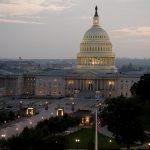While much of the corporate world has high hopes for a business-friendly bent from the Trump Administration, two policy analysts on Wednesday poured cold water on some of the payments industry’s fondest hopes for regulatory relief.
One such hope, to scrap a 1,689-page rule regulating prepaid cards, was sinking fast even as the analysts spoke. Months-long, Republican-led efforts in both the House of Representatives and the Senate failed to nullify the rule within the boundaries set by the Congressional Review Act, which requires Congress to act within 60 legislative days from the date of publication of a targeted regulation. That time clock ran out Thursday. Earlier, the Consumer Financial Protection Bureau had agreed to extend the rule’s effective date by six months to April 1, 2018.
The analysts speaking on Wednesday said the nullification effort failed in part because not all in the prepaid industry were fully in favor of it. “The industry was not unified on whether it wanted to see” the rule eliminated, said Jaret Seiberg, managing director and long-time Washington observer at Cowen Group Inc., a New York City-based investment house. “When an industry is not unified, it’s extraordinarily difficult to get your friends on the Hill to go along.”

Another long-held payments-industry ambition, to scrap the Durbin Amendment to the 2010 Dodd-Frank Act, will also likely fail, the panel predicted. “The odds of the Durbin Amendment getting repealed are 10%,” predicted Boltansky.
The amendment, written by Sen. Richard Durbin, D-Ill., caps debit card interchange rates for large issuers and requires all debit card issuers to offer at least two unaffiliated networks on all their cards. The Financial Choice Act, soon to come under consideration in the full House after a favorable vote last week in the House Financial Services Committee, would scupper the amendment as part of an overhaul of Dodd-Frank.
The logic behind Boltansky’s pessimistic outlook stems from the awkward position in which Senators and Representatives find themselves with respect to the amendment, which is backed by merchants and opposed by big banks. “Repealing Durbin makes politicians do something they loathe—choose between two moneyed interests,” he said. “Politicians don’t want this issue. [Repeal] will be stripped out of the bill.”
Indeed, Seiberg predicted that if the House comes under Democratic control in the 2018 mid-term elections, a possibility that can’t be discounted, it might turn its hand to controlling credit card interchange. At that point, he said, the odds will be “much higher that Congress will do something negative on credit card interchange than that it will repeal Durbin.”





